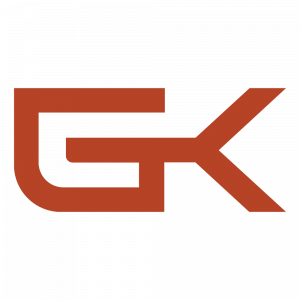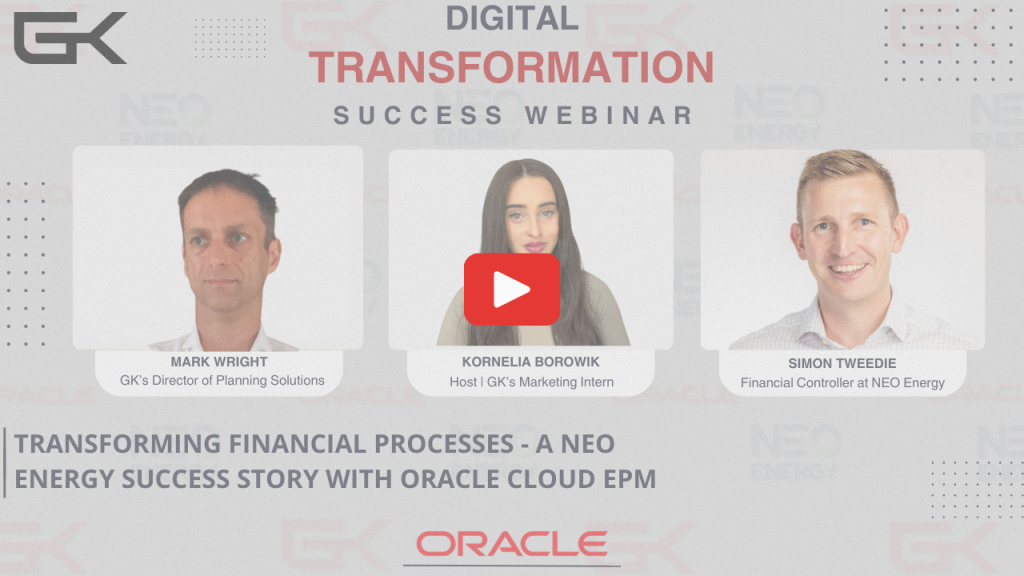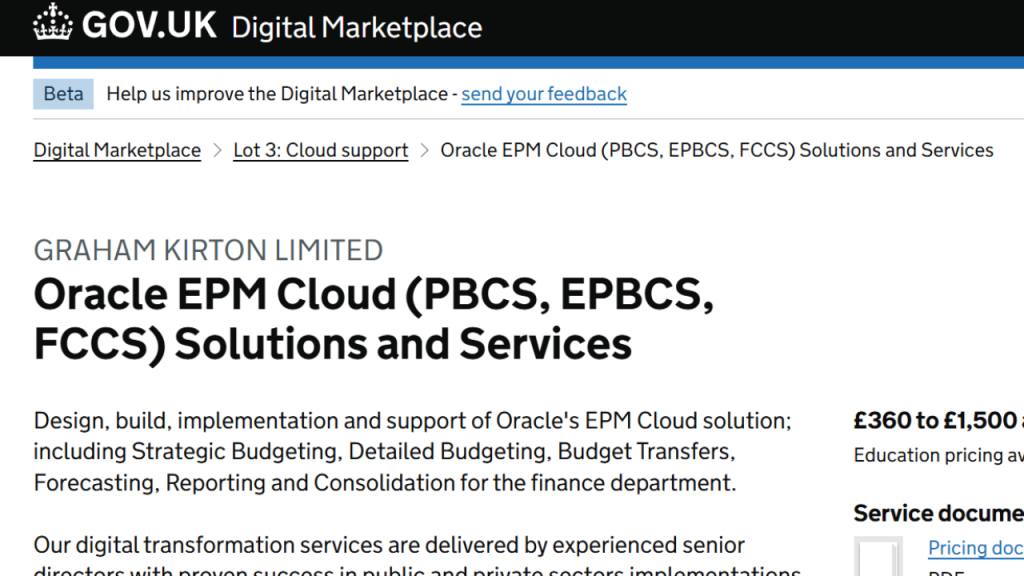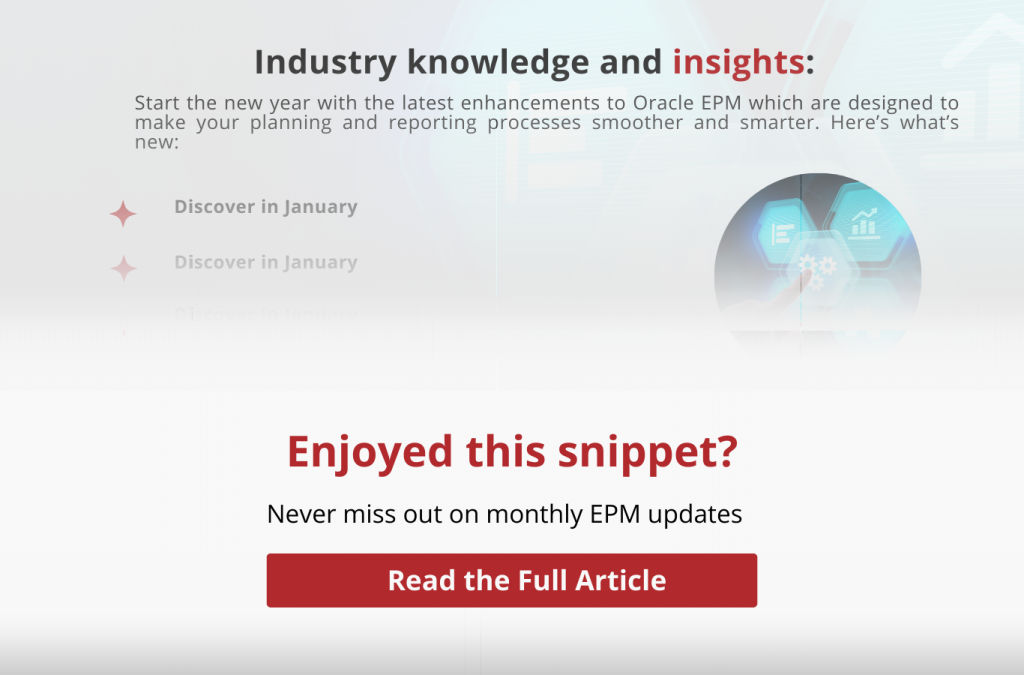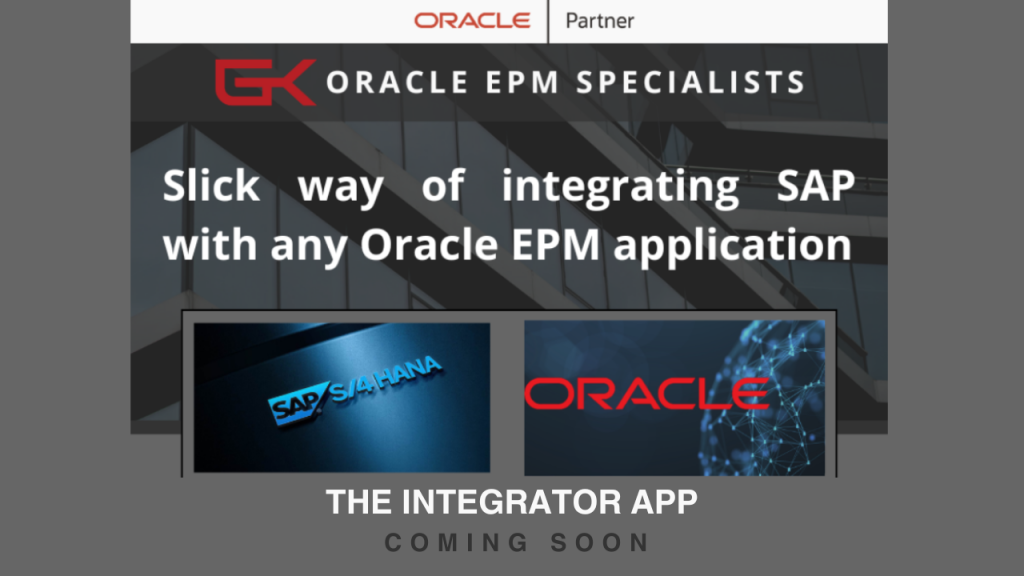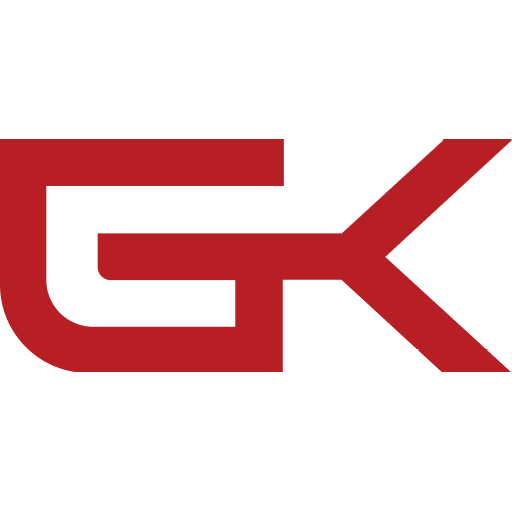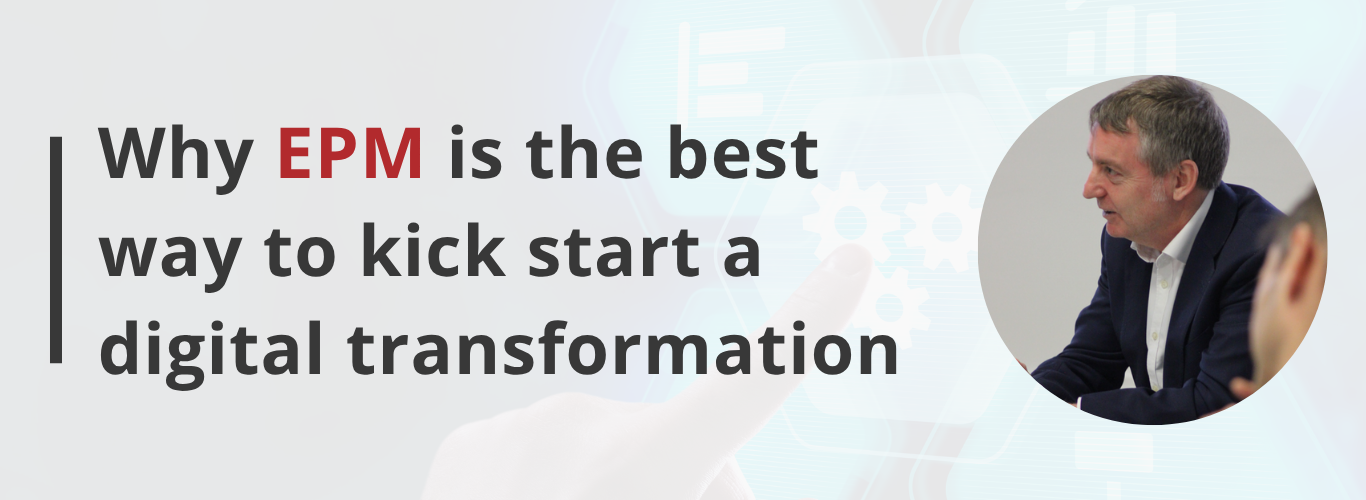
Ed Graham, founder, and director at GK shares why his past experience can help a client implement a successful finance system and why an EPM is the best way to kick start their digital transformation.
My background as company accountant led me to be interested in systems, to becoming systems consultants, then implementing them – my real interest is in configuring the systems. Right now, GK are concentrating mainly in the office of the CFO in consolidation, reporting and planning for larger companies. I have worked at four of the biggest banking groups in the UK as well as some smaller companies. I’ve also worked for vendors in -house and as an independent consultant. This level and mix of experience can give me the means to identify what good looks like.
I guess that’s why I decided to create my own company because I wanted to.
to put these learning into practise, but also to able to inform the process of implementing a financial IT system.
Being a qualified accountant helps me understand the requirements of the people and teams we are delivering for. I have been in their position. Knowing the terms and language used in the office of the CFO enables me to articulate what is needed and why – keeping the benefit to the client at the centre.
Democratising data is the most common problems we are trying to solve for clients – getting the data from the source systems and bringing it all together to them give a single source of truth.
An EPM, which is what we specialise in, lives on top of traditional company systems and it allows you to combine data from these multiple sources such as an ERP or from HR applications. It replaces multiple spreadsheets, making reporting faster and more accurate.
If you are still using spreadsheets to get the single source of truth you could be losing time and missing opportunities, here’s why.
Say you have one or two people in finance, in the same office, working on the spreadsheets, the data security can be easily controlled. But once you get to a certain size sharing and working concurrently with the data becomes more challenging – with multiple versions there no one line of sight. Keeping that data secure – managing permission so no one can delete the spreadsheet, or the company data gets harder the more people who require access to it.
As a company gets bigger, they will want to use their data to help them be more strategic too. Not having a single source of truth means more time-consuming data analysis and reduces a company’s ability to create accurate budgets and forecasting in the long-term.
I encourage all our clients is to have a line of sight from the data all the way down to the source transactions. Starting a digital transformation project with an EPM can realise the most benefits (democratised data and the ability to produce additional, actionable data) with the least risk. It’s not a transactional system, so you’re never going to risk business transactions.
The cost of an Oracle EPM project is not excessive and the timeline it’s a lot shorter than, say, implementing an ERP. If you are thinking about doing it, we say you should go for it, even if you only realise some of the benefits straight away, you’ve got the platform to build on. Oracles vision is a connected set of EPM apps with each using the right tool for the right job. This allows you to grow the solution as your company does and we see our role at GK to help you build out the capabilities overtime. It’s definitely a great way to make a big impact in a short amount of time. For example, if you are new in your role and you want to do a project to develop the capabilities of your team then an EPM project is perfect.
An experienced team is knowing what good looks like and being able to put it in to practice. The team at GK probably have some of the most experienced in the industry. This is why we have delivered successful projects for all our clients. We have obviously had setbacks. We know it is not an easy process. But, you know, a setback is a chance to step back and identify and improved ways to approach the problem.
GK is niche consultancy and if any of our clients have an issue, they know they can always come straight to me or anyone on the team. Everyone at GK is expected to be hands on, supporting, delivering, and helping our clients. We spend money on our people, not on offices or other costly overheads and we go where the work requires.
Our team’s expertise is our difference – the same people that will be specifying your project are the same people who will be delivering it, which offers great continuity. You get to see the experience up front, and you get to see the experience on the ground. And it’s this experience that really counts.
Have a Question About EPM? We're Here to Help!
Featured content
GK’s Oracle EPM Implementation Success Webinar: Transforming Financial Planning at NEO Energy
We’re live on G-Cloud 14. This means public sector organisations can now easily access our Oracle EPM services on the Digital Marketplace!
Have you seen the Oracle EPM’s latest update on our insights page? If not, now is the time!
We have developed a slick way of integrating SAP with any Oracle EPM application including the ability to integrate with SAP S4 Hana public cloud.
